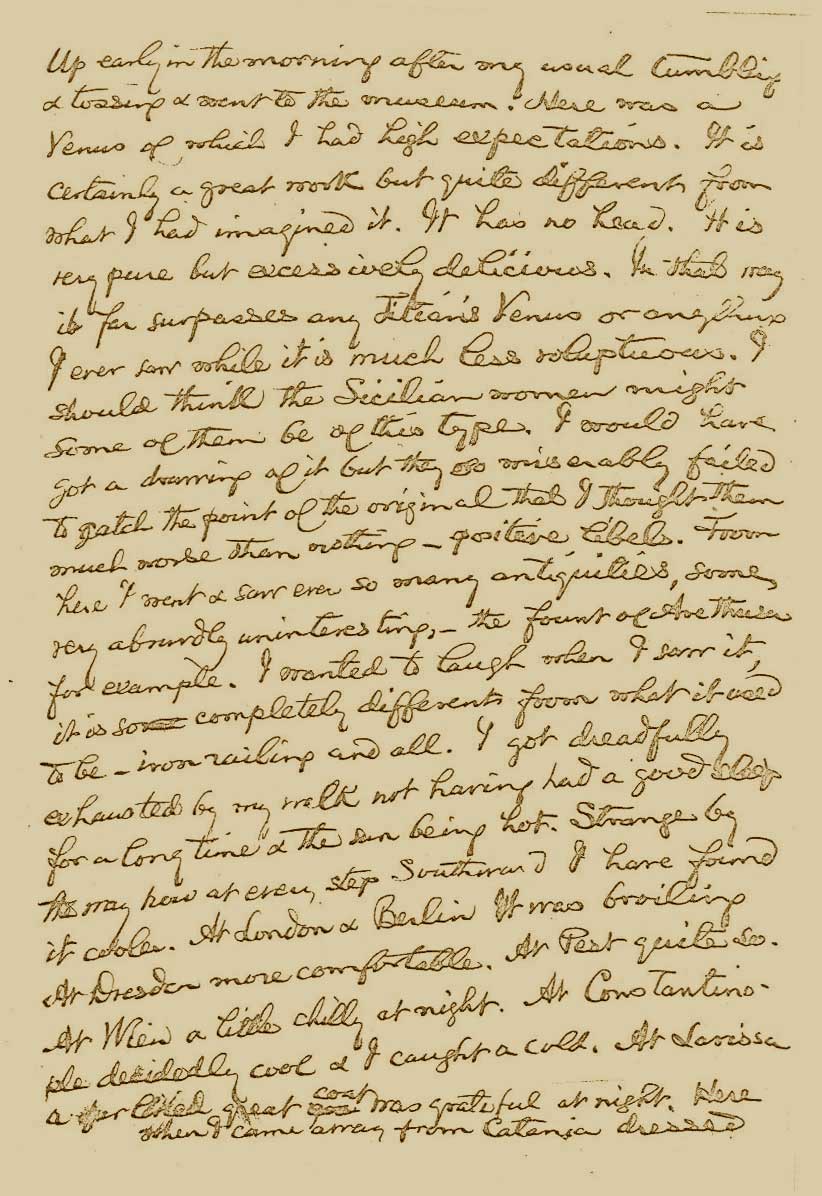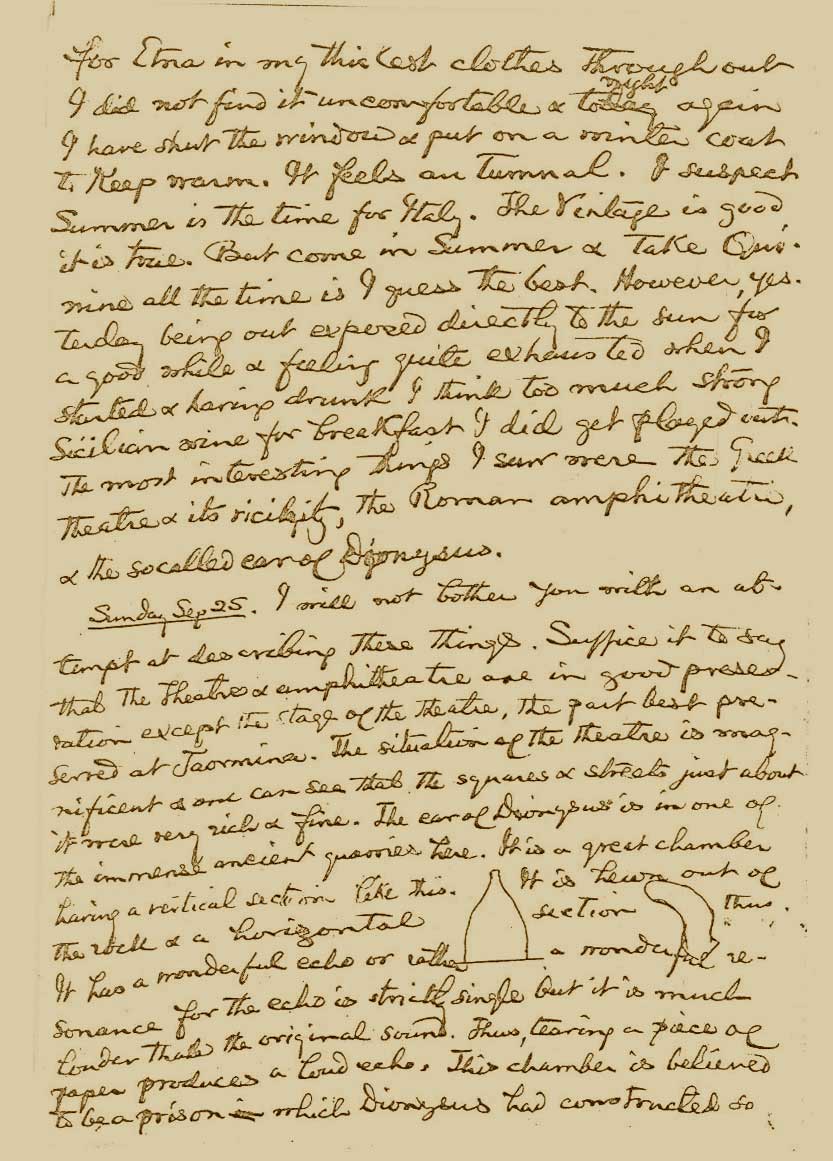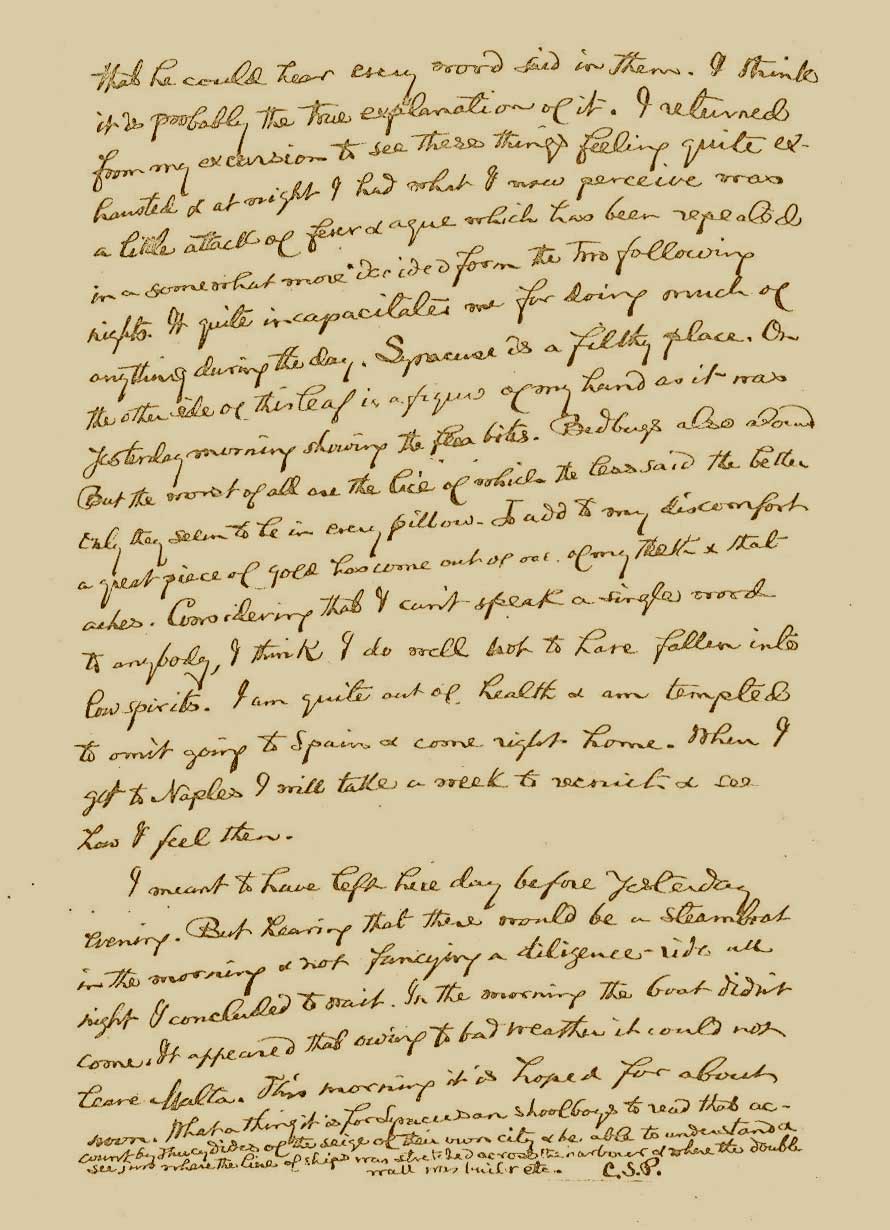| Dear
Zina. Sicily is a dreadfully vexatious place -they impose upon one so
frightfully and especially upon me because I do not know one single
word of the lingo. Consequently I was fretting most of the time I was
in Messina & left there in thoroughly bad humour. But the extraordinary
& picturesque appearance of the country was too much for the worst of
tempers. It is difficult to give a notion of the character of a country
so unlike what you have seen. You are to imagine hills almost mountains
precipitously though rounded & totally without the grave & gloomy effect
which hills usually have but on the contrary seeming particularly joyous.
All is joy in Sicily. They were often covered with vines when not too
steep & it was time of the vintage. The peassants were apparently in
high spirits. These hills also derived a peculiar effect from being
all covered over with horizontal lines thus.
They
often had old strongholds on them but oftener far more picturesque churches
& villages. No doubt this is the garden of the world, I thought. That
evening I arrived at Giardini whence I was to ascend to Taormina. Thinking
I should have to carry up my heavy trunks, I hired a voiture & then
decided to leave behind all but my handbag. |
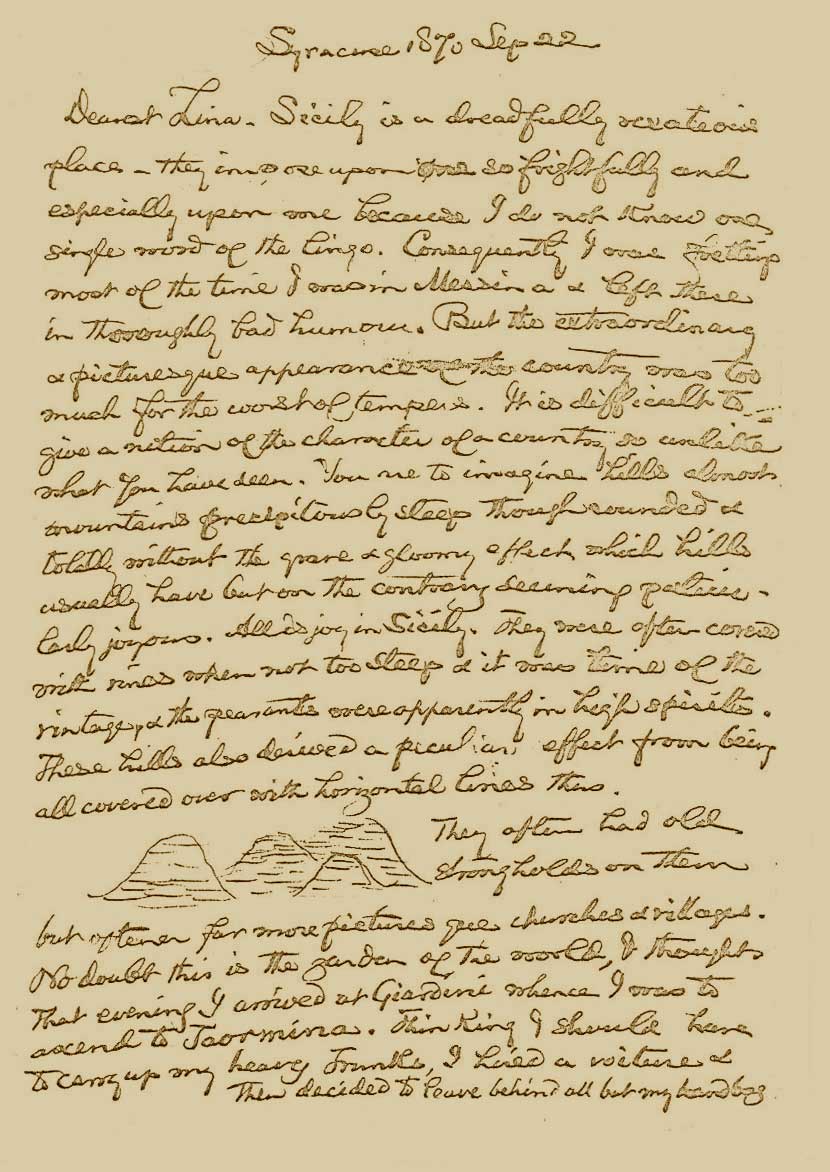

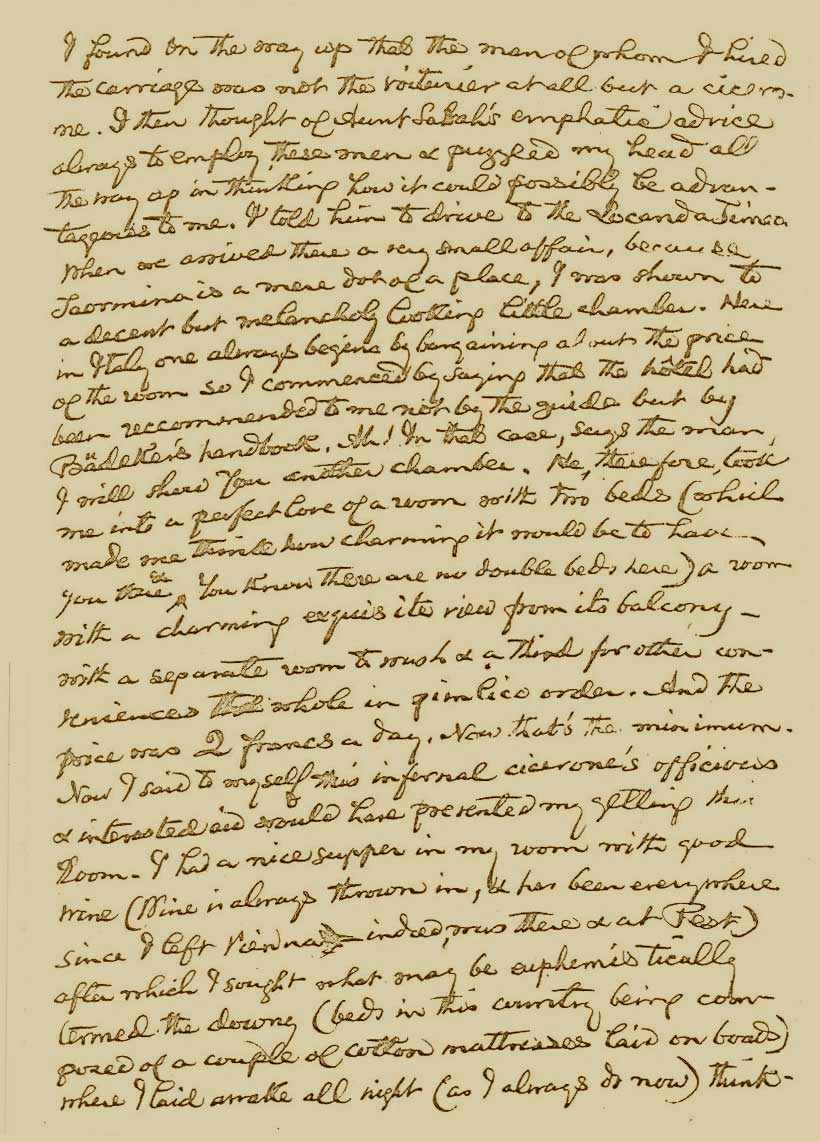
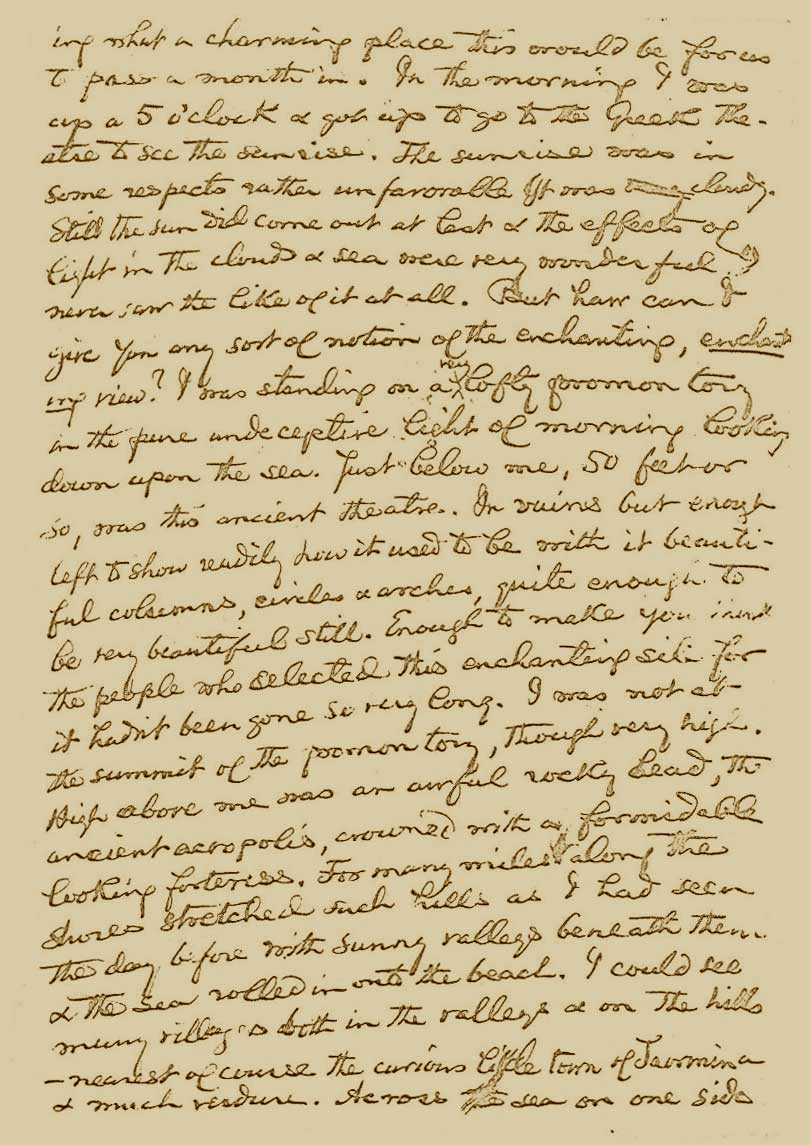
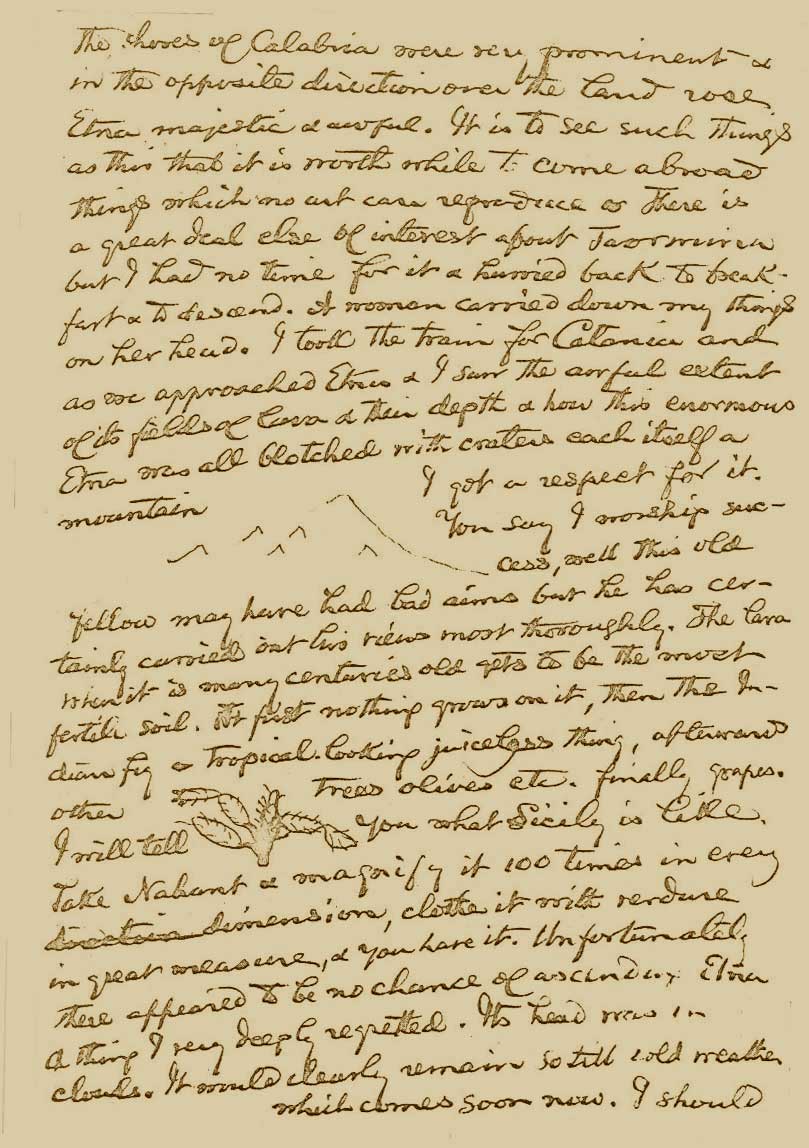
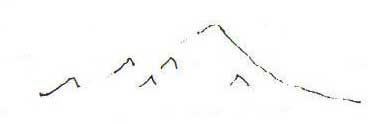
 Take
Nahant & magnify it 100 times in every dimension, clothe it with
verdure in great measure & you have it. Unfortunately there appeared
to be no chance of ascending Etna, a thing I very deeply regretted.
Its head was in clouds. It would clearly remain so till cold weather
which comes soon now. I should
Take
Nahant & magnify it 100 times in every dimension, clothe it with
verdure in great measure & you have it. Unfortunately there appeared
to be no chance of ascending Etna, a thing I very deeply regretted.
Its head was in clouds. It would clearly remain so till cold weather
which comes soon now. I should 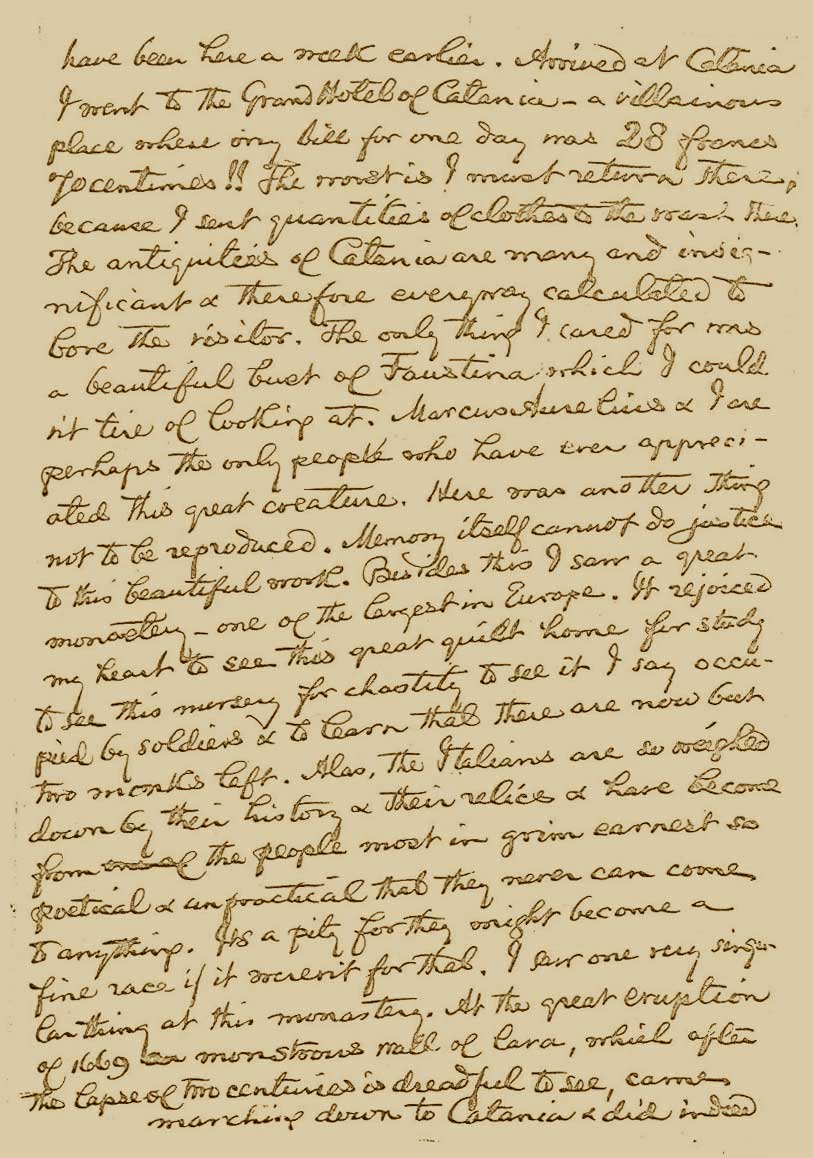
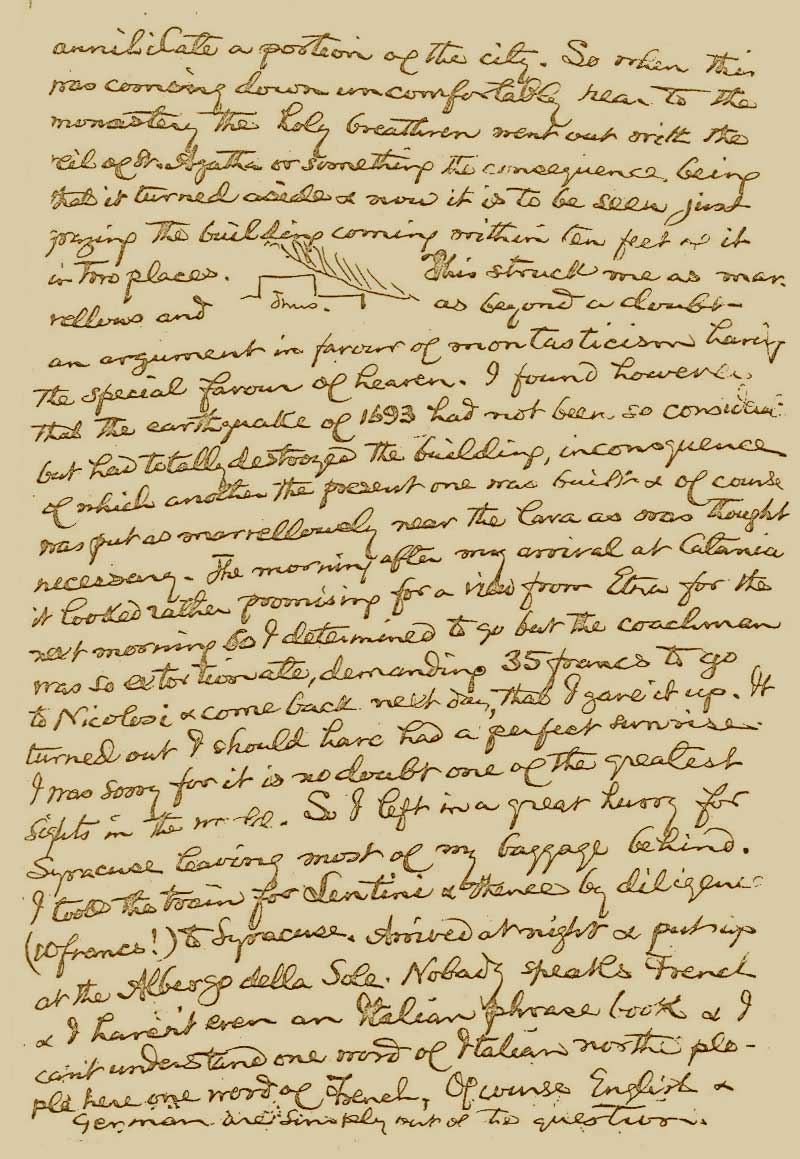
 This
struck me as marvellous and as beyond a doubt an argument in favour
of monasticism having the special favour of heaven. I found however
that the earthquake of 1693 had not been so considerate but had totally
destroyed the building, in consequence of which another, the present
one, was built & of course was put as marvellously near the lava
as was thought necessary. The morning after my arrival at Catania it
looked rather promising for a view from Etna for the next morning so
I determined to go but the coachman was so extortionate, demanding 35
francs to go to Nicolosi & come back next day, that I gave it up.
It turned out I should have had a perfect sunrise. I was sorry for it
is no doubt one of the greatest sights in the world. So I left in a
great hurry for Syracuse leaving most of my baggage behind. I took the
train for Lentini & thence by diligence (10 francs!) to Syracuse.
Arrived at night & put up at the Albergo della Sole. Nobody speaks
French & I haven’t even an Italian phrase book & I can’t
understand one word of Italian nor the pople here one word of French.
Of course English and German are simply out of the question.
This
struck me as marvellous and as beyond a doubt an argument in favour
of monasticism having the special favour of heaven. I found however
that the earthquake of 1693 had not been so considerate but had totally
destroyed the building, in consequence of which another, the present
one, was built & of course was put as marvellously near the lava
as was thought necessary. The morning after my arrival at Catania it
looked rather promising for a view from Etna for the next morning so
I determined to go but the coachman was so extortionate, demanding 35
francs to go to Nicolosi & come back next day, that I gave it up.
It turned out I should have had a perfect sunrise. I was sorry for it
is no doubt one of the greatest sights in the world. So I left in a
great hurry for Syracuse leaving most of my baggage behind. I took the
train for Lentini & thence by diligence (10 francs!) to Syracuse.
Arrived at night & put up at the Albergo della Sole. Nobody speaks
French & I haven’t even an Italian phrase book & I can’t
understand one word of Italian nor the pople here one word of French.
Of course English and German are simply out of the question. 